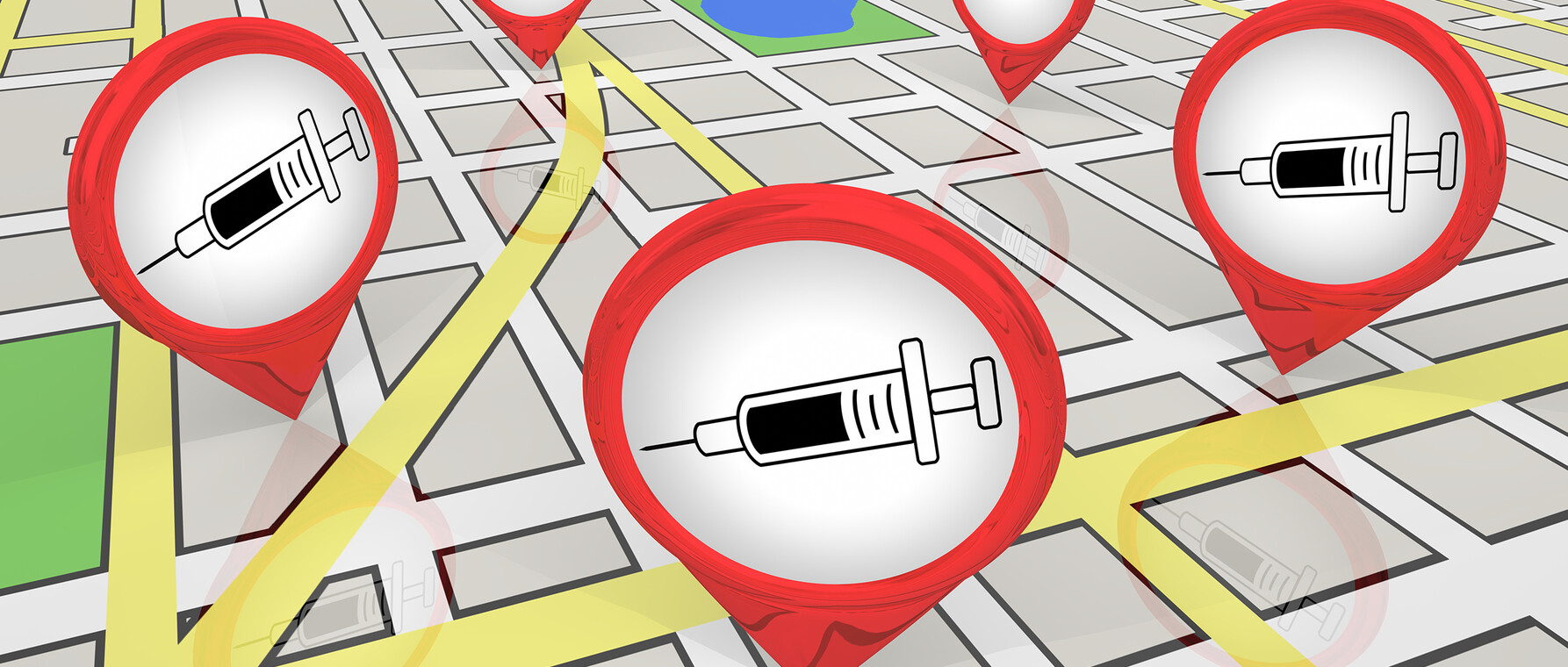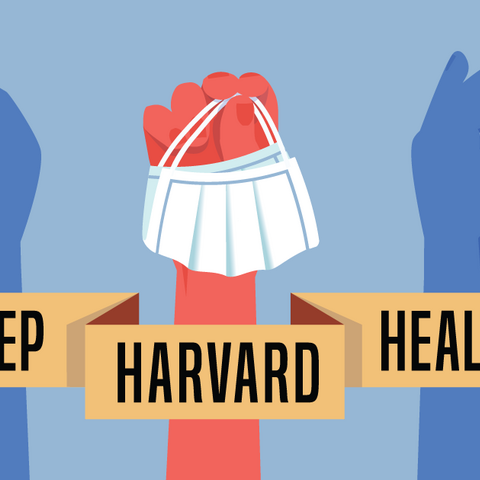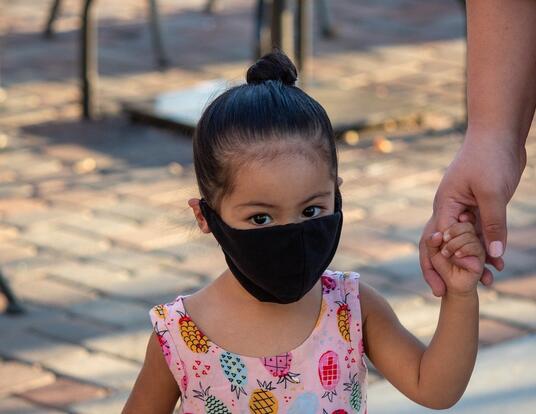Bringing Vaccination Online
Student volunteers aid in COVID vaccine information effort

Madeleine Barowsky wanted to get involved in the fight against COVID-19, but she wasn’t sure how. A second-year GSAS student who studies computer science at the Harvard John A. Paulson School of Engineering and Applied Sciences, her expertise was mostly technical and organizational. Then she found out about VaccinateMA, a website founded by Boston resident Zane Stiles that makes it quick and easy for Massachusetts residents to find the nearest vaccination site. She decided to volunteer.
“I’d heard that people were having a hard time figuring out how and where to get the vaccine,” she says. “Even though I’m not eligible yet, I want to do all I can to make sure the rollout goes smoothly. So, I got in touch with Zane and we talked about ways that I could help.”
Today, Barowsky donates her time and expertise to the vaccine communication and outreach effort in the Commonwealth—and helps others to do the same. Together with fellow Harvard student-volunteer Naila Segule, Barowsky joins in VaccineMA’s effort to leverage information technology, increase inoculations, and put an end to the pandemic in Massachusetts.
A Central Resource
Barowsky heard about VaccinateMA after she’d checked out Mass.gov in January for info about the vaccine rollout. At the time, she felt concerned with what she’d found, although she acknowledges that the site has improved since then.
“You had to download a Word doc with vaccine locations from the state site,” she says. “I'm not sure it even had an embedded Google Map at that point, which they do now.”
In contrast, VaccinateMA is a centralized online resource for browsing vaccine sites and availability across the state of Massachusetts. Users simply type in their zip code and click a button for a list of locations near them. Moreover, VaccinateMA provides information about the locations themselves, which can be important for those with concerns about accessibility.
“For a lot of the sites, it may be unclear whether they're compliant with the Americans with Disabilities Act,” says Segule, who worked last summer on the state of North Carolina’s COVID-19 mitigation effort and studies environmental health at the Harvard T. H. Chan School of Public Health. “That can make people hesitant to book an appointment. As volunteers, we share on our website any accessibility information that vaccine locations make available.”
By putting the information in one place and streamlining the search process, we help make the vaccine accessible to everyone, not just those who know how to get on a vaccine list.
Barowsky spends much of her time recruiting and training new volunteers for VaccinateMA, as well as analyzing website analytics, and leveraging her computer science background to fix programming bugs on the site. And to make sure that VaccinateMA has the most updated location and availability information, she, Segule, and their fellow volunteers visit dozens of different vaccine websites every day. The work is labor-intensive, but crucial since cities and towns might not publicly list links to all the vaccine location information on their websites. Segule says that the data the team gathers helps promote equity in vaccine distribution.
“A lot of people don't have the time or ability to sit, go to every single site, and read through all the material,” she says. “By putting the information in one place and streamlining the search process, we help make the vaccine accessible to everyone, not just those who know how to get on a vaccine list.”
Clear and Straightforward
Although VaccinateMA has only been up a few weeks, there are already indications that it’s having an impact on the vaccine effort. While Barowsky can’t release exact numbers, she says that the analytics show that users do get vaccinated after visiting VaccinateMA. Comments from the site’s feedback form have also been positive.
“People say that the site is very clear and straightforward,” she says. “One person wrote to say that they were able to book an appointment for their 86-year-old mother-in-law by using VaccinateMA.”
With the site up and running, Barowsky and Segule say that their efforts will increasingly shift to outreach, targeting homeless, emergency, and domestic violence shelters to get those who are eligible information about where and how to get the vaccine. The volunteers are also doing all they can to combat vaccine hesitancy and misinformation.
“A lot of people just don't know how the vaccine came to be made,” Segule says. “So, they don’t think it’s safe and want others to get it first. We try to help them understand why the vaccine is trustworthy—that the fact it was made so quickly doesn’t mean that steps were skipped. People over 50, in particular, care a lot about helping others, so we also try to stress the benefits to the community.”
Above all, Barowsky, Segule, and their teammates urge people to use the site now and think about getting vaccinated before they become eligible. Even with VaccinateMA, it can still be challenging to get an appointment when the time comes.
“When you're in a group that's eligible, maybe you weren't having conversations about the vaccine beforehand,” Barowsky says. “Then it’s time and it seems like all the appointments are gone. So, you have to start thinking about it early and visit the website. It’s just like when people wanted to vote during the pandemic. You’ve got to make a plan.”
Cover photo courtesy of Shutterstock
Get the Latest Updates
Join Our Newsletter
Subscribe to Colloquy Podcast
Simplecast Stitcher




